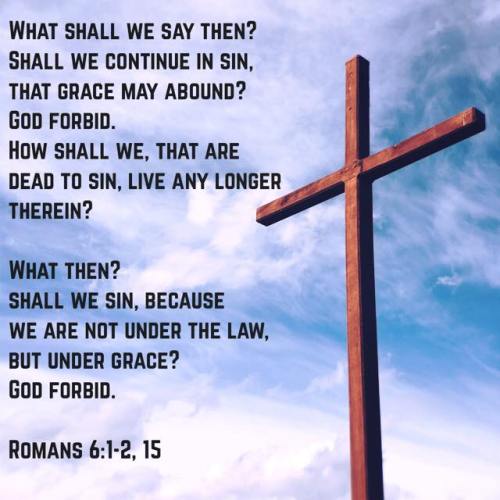Christianity can be condensed into four words: Admit, Submit, Commit and Transmit. -Samuel Wilberforce
SOLA FIDE AND SOLA GRATIA
Justin Holcomb
The Protestant Reformation of the 16th century changed Christianity forever. Roused to action by the corruption and abuses they saw in the Roman Catholic church of the time, visionary pastors and leaders like Martin Luther and John Calvin spearheaded a movement that transformed Christianity and eventually led to the emergence of the Protestant denominations that exist today.
The Reformers were guided by the conviction that the church of their day had drifted away from the essential, original teachings of Christianity, especially in regard to what it was teaching about salvation—how people can be forgiven of sin through the death and resurrection of Jesus Christ and receive eternal life with God. The Reformation sought to re-orient Christianity on the original message of Jesus and the early church.
The Five Solas are five Latin phrases (or slogans) that emerged during the Reformation to summarize the Reformers’ theological convictions about the essentials of Christianity.
The Five Solas are:
- Sola Scriptura (“Scripture alone”): The Bible alone is our highest authority.
- Sola Fide (“faith alone”): We are saved through faith alone in Jesus Christ.
- Sola Gratia (“grace alone”): We are saved by the grace of God alone.
- Solus Christus (“Christ alone”): Jesus Christ alone is our Lord, Savior, and King.
- Soli Deo Gloria (“to the glory of God alone”): We live for the glory of God alone.
Let’s have a brief look at each of these five points.
SOLA SCRIPTURA
The Scriptures are our ultimate and trustworthy authority for faith and practice. This doesn’t mean that the Bible is the only place where truth is found, but it does mean that everything else we learn about God and his world, and all other authorities, should be interpreted in light of Scripture. The Bible gives us everything we need for our theology.
Every word of the 66 books of the Bible is inspired by God’s Holy Spirit. The Holy Spirit also helps us to understand and obey Scripture.
2 Peter 2:20, the Bible is about Jesus Christ and his role as God and Savior. Additionally, Romans 15:4 is 2 Timothy 2:16.
SOLA FIDE AND SOLA GRATIA
We are saved solely through faith in Jesus Christ because of God’s grace and Christ’s merit alone. We are not saved by our merits or declared righteous by our good works. God grants salvation not because of the good things we do, and despite our sin.
As humans, we inherited (from our ancestor Adam) a nature that is enslaved to sin. Because of our nature, we are naturally enemies of God and lovers of evil. We need to be made alive (regenerated) so that we can even have faith in Christ. God graciously chooses to give us new hearts so that we trust in Christ and are saved through faith alone.
God graciously preserves us and keeps us. When we are faithless toward him, he is still faithful.
We can only stand before God by his grace as he mercifully attributes to us the righteousness of Jesus Christ and attributes to him the consequences of our sins. Jesus’ life of perfect righteousness is counted as ours, and our records of sin and failure were counted to Jesus when he died on the cross.
Sola fide and sola gratia express the teaching of Ephesians 2:8:
“Forby grace you have been savedthrough faith. And this is not your own doing; it is the gift of God, not a result of works, so that no one may boast. For we are his workmanship, created in Christ Jesus for good works, which God prepared beforehand, that we should walk in them.”
SOLUS CHRISTUS
God has given the ultimate revelation of himself to us by sending Jesus Christ, Colossians 1:15. Only through God’s gracious self-revelation in Jesus do we come to a saving and transforming knowledge of God.
1 Timothy 1:5. Because God is holy and all humans are sinful and sinners, 1 John 1:1 Hebrews 7:25Romans 8:34. Neither religious rituals nor good works mediate between us and God. Acts 4:12 by which a person can be saved other than the name of Jesus. Hebrews 7:23, and his sacrificial death alone can atone for sin.
SOLI DEO GLORIA
Glory belongs to God alone. God’s glory is the central motivation for salvation, not improving the lives of people—though that is a wonderful by product. God is not a means to an end—he is the means and the end.
The goal of all of life is to give glory to God alone: “Whether you eat or drink, or whatever you do, do all to the glory of God” (1 Corinthians 10:31). As The Westminster Catechism says, the chief purpose of human life is “to glorify God and enjoy him forever.”
Justin Holcomb is an Episcopal priest and teaches theology at Reformed Theological Seminary and Knox Theological Seminary. Justin wrote On the Grace of God and co-authored with his wife Lindsey Rid of My Disgrace and Save Me from Violence. He is also the editor of Christian Theologies of Scripture. You can find him onFacebook, Twitter, and at JustinHolcomb.com.



No comments:
Post a Comment